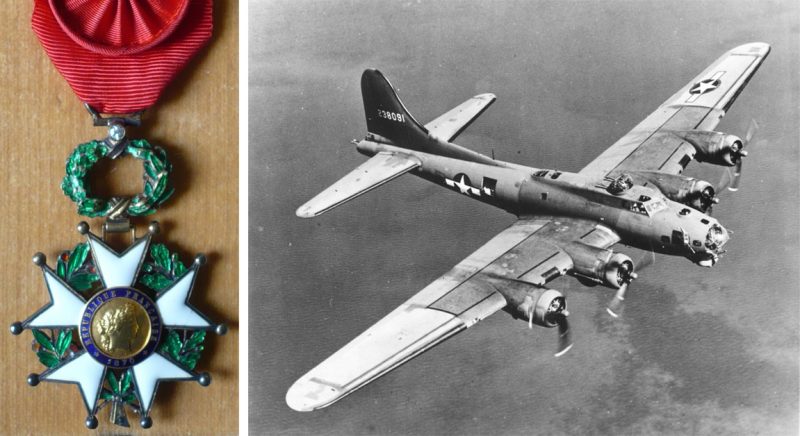James Facos was the ball turret gunner in a B-17 Flying Fortress. He flew 30 missions, including bombing runs to prepare for the D-Day invasions at Normandy.
Last week Facos received a certificate from French President Francois Hollande that installed him as a Chevalier in the Legion of Honor.
At the age of 19, the US Army Air Corps had awarded him the Distinguished Flying Cross. Now, at 91, he is receiving France’s highest honor.
“I was caught by it,” said Facos. “To be a Chevalier – a Chevalier, you know, is a knight. So I’m recognized as a knight.”
The honor was first awarded by Napoleon Bonaparte in 1802. Starting in 2004, on the 60th anniversary of D-Day, the French have been awarding the honor to U.S. veterans who distinguished themselves while defending France against the Nazis in World War II.
Valery Freland, France’s consul general in Boston, wrote a letter stating that the award “is a sign of France’s infinite gratitude and appreciation for your personal and precious contribution to the United States’ decisive role in the liberation of our country in World War II.”
The ball turret was located on the bottom of the B-17. There wasn’t enough room in the turret for a parachute. If the plane were to be shot down, the gunner would need to climb out of the turret to get a parachute.
“I never wore a ‘chute during combat, so that made it more interesting,” Facos said. It also wasn’t possible to get out to go to the bathroom during the 9 to 10-hour missions. “You went before you got in (the turret) and then, that was it,” he recalled.
Facos was born to a Greek immigrant father and an Irish mother in 1924. He worked as a bookkeeper after the war. He went on to receive a bachelor’s and master’s degree. He worked at Vermont College in Montpelier for decades, teaching English. He is a published playwright, novelist, and poet.
His son, Tony Facos, works as the police chief in Montpelier. He said his father didn’t talk much about the war while he and his sisters were growing up. “I had to pry stuff out of him. He didn’t want to talk about it. He wasn’t even a big fan of me playing with guns or toy soldiers,” he said. He’s proud of his father, he said, and is enjoying the new-found recognition.
Even now, Facos recalls the details of those missions in a matter-of-fact way. “You’re aware of death. But the idea is that there are things that are much more important than death,” he said. “Death is not important; it’s what you do with your time that counts.”
